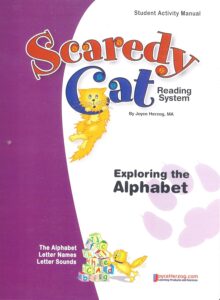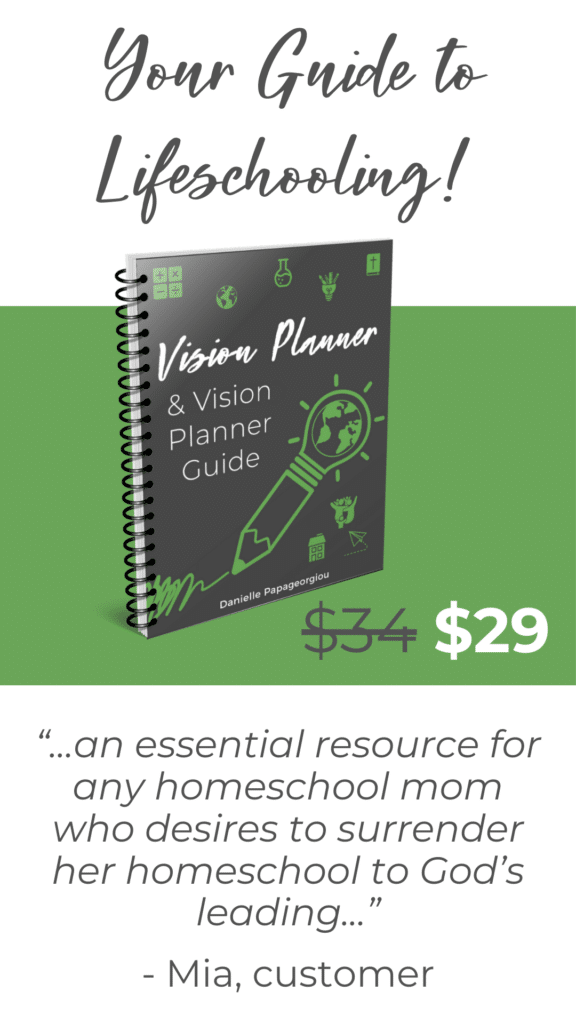Encouragement for Teaching Struggling Readers
Many moms worry too much over reading, and struggling readers. The truth is, reading typically happens much more naturally than we realize, and when a child is truly ready, something in the brain seems to just “click.”
Teaching is important, but I think we often over-emphasize our role. I tend to heavily encourage moms to relax and just wait for it to “click,” and I’ve shared a few tips for teaching reading in a lifeschooling way in this post.
Sometimes reading is a unique challenge.
But some children do require more dedicated time in this area and some even have legitimate physical issues in the brain that make reading a unique challenge, and I don’t want to minimize this. If you sense the Holy Spirit prompting you to check for particular problems with neurology, sight, etc. follow His leading! One concerned mother wrote the following:
Our first child was reading Chalet books by five years of age. Our second child was finally able to read Dr. Seuss books by eleven years of age. My greatest struggle was between my own mommy instinct that something was wrong and the constant writes from other well-meaning parents that some boys take longer and that could be his normal.
However, boy #2 had actual close vision delays that needed professional care. I could not get anyone, including the regular eye doctor to acknowledge my concerns.
After just 15 minutes of reading practice, that child had headaches. He complained of itchy eyes and headaches. He had blurry vision and trouble focusing, yet he didn’t know how to describe those symptoms. They were what he had always experienced, and he thought everyone saw those things. Letters bounced on the page, because his eyes fought for dominance rather than working together. His eyes could not focus independently or track as a team. No wonder he could not read no matter how much he tried!
So, please stop telling every mom that their struggling readers will read when he or she is ready. If that mom thinks there could be a problem, please encourage her to follow her gut, but to trust the Lord. She should ask specifically for a developmental vision therapist who can diagnose close vision delays. These delays can be fixed with therapy (much of which can happen at home).
I was bashed for being worrisome, and my son thought nobody would listen to him. He stopped complaining about any issues related to his eyes, even stopped tilting his head to compensate for the appearance of moving letters as his eyes tried to focus and track separately. He struggled to read like his older and younger siblings. He fought for a year until he became near-sighted. Then someone finally listened to me. Then I demanded to be referred to a close-vision doctor.
Be brave. Trust your mommy instincts. Don’t let a child who can’t read yet worry you. Just put your foot down early, and don’t let others tell you that checking is wrong. Go calmly and get that checked, especially if the child tilts his head, has itchy eyes, blinks often, complains of headaches, etc. during reading practice. Be proactive, but be at peace. God has this, too!
There is balance in teaching struggling readers.
If you feel that something just isn’t right and suspect true physical problems, it may be important to look into that. But we live in a culture that over-diagnoses and over-labels and while these things can be helpful, they can also become a crutch or be handled in the wrong way. Professionals sometimes get so caught up in their own expertise and training that they go way beyond what’s needed. Sometimes after evaluation the problem is clear and the solutions are pretty simple. . . as in the case of this mother.
My own husband believes he has dyslexia (letters flipped around and moved), but because he did not receive any help, he simply learned how to cope in the way that worked best for him. Granted, he is very intelligent. But I do think some kids just need a little encouragement and a few tips and they will do fine. Sometimes that takes a professional, but often it does not. (Remember, these people are running businesses and have a monetary interest in diagnosing and labeling.) When we get too caught up in labels and treatments, we can sometimes hinder more than help because then the child feels like there is something wrong with them and they give up or don’t think they can achieve what others can. It’s a tricky balance, but psychology is a powerful thing! And it can have life-long impact.
Trust your gut and listen to God.
I know this first-hand. While I was never labeled by a professional (thank the Lord!), I labelled myself as unintelligent because I did not learn how others did and did not find academics easy. I didn’t fit into the box, and spent my years in school daydreaming and imagining. I would work so hard to focus on what the teacher was saying, only to find myself lost in thought because something he/she said sent me on a million rabbit trails of creativity! I was bursting with ideas. I KNOW I would have been labelled ADHD, but even with the self-imposed label it took me years to understand that my intelligence was just different. I am highly creative.
Another example… My oldest son stuttered very badly when he was very young. Some thought we needed to take him for evaluation, but we felt we could work through it fine with him ourselves. My husband would just tell him to stop talking and think first. Just getting him to slow down and think through what he wanted to say, then say it slowly helped to break him of it in a few months. His little brain just went way faster than his mouth could keep up with! 😆 Remember, moms, ultimately YOU are the best expert on YOUR child. Advisors and experienced voices are important, but trust your gut and listen to God when in comes to your struggling readers.
Some further reading:
For anyone wanting more help with struggling readers, I highly recommend the book Learning in Spite of Labels by Joyce Herzog. Joyce was involved in the homeschooling movement way back in the pioneer days and I know her personally. I think she takes a wonderfully balanced approach to this topic and has brilliant ideas for helping a child with dyslexia and other special needs. She also has a highly acclaimed reading program for reluctant readers called Scaredy Cat Reading System.
You may have a tough time finding these book, unfortunately, but if you can’t find them on Amazon, check eBay. Some of the old curriculum and resources are timeless and SO worth searching out!
I hope these thoughts and tips encourage you! Teaching reading may not go as smoothly with your child as it does for many, but struggles can be overcome with wisdom and perseverance…and of course, prayer! Follow the Lord’s leading and trust the process. He is with you, mama!
- Top Books for Entrepreneurs - November 14, 2025
- Spiritual Warfare: The Power of Praise - November 13, 2025
- How to Make Instantpot Applesauce in 30 Minutes or Less! - September 30, 2025






